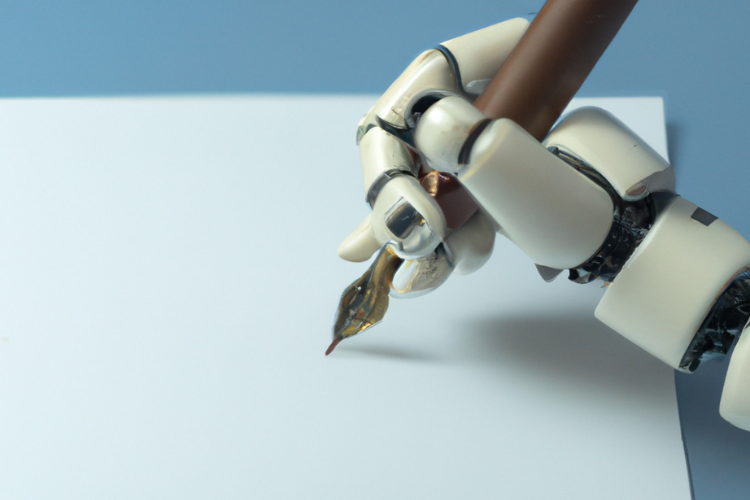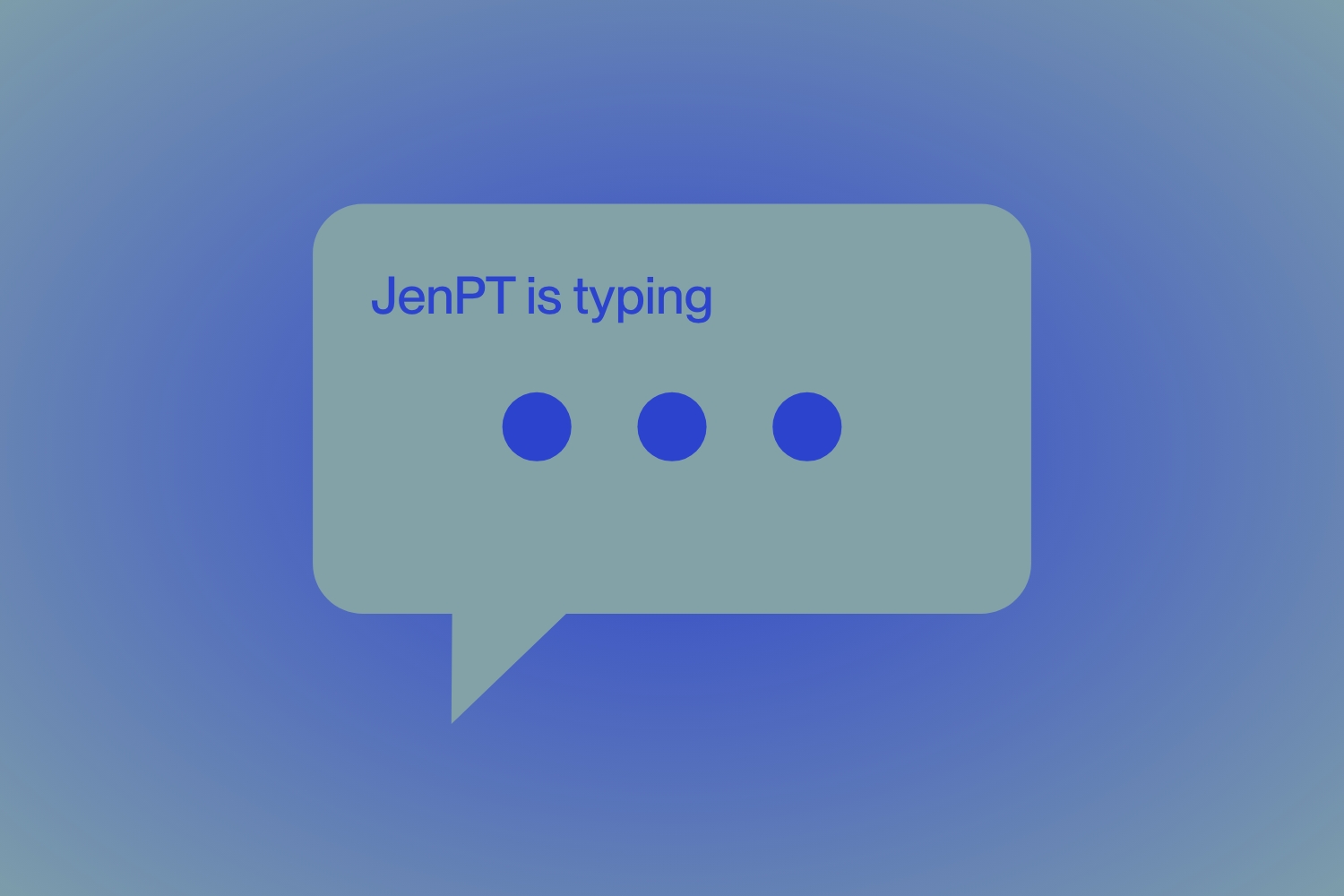
AI, ChatGPT and Bing – what is the future of content?
Is the long-promised AI future finally upon us? The flurry of excitement that the latest AI technologies have caused worldwide over the last three months certainly suggests so.
But now the dust is settling and we are coming to terms with a new reality, it’s time to take stock. With so much talk of what effect AI will come to have on all industries - as well as the way we live our day-to-day lives – I want to take a look at how the world of AI-assisted content might look in the near future, and how we at Caution Your Blast Ltd (CYB) could use it in our work, and help our mission to use digital as a force for good.
First, a quick recap. ChatGPT, an AI interface built by OpenAI on the GPT-3 large language model, was launched in November 2022. It caused worldwide astonishment with the conversational skills of its chatbot, which could answer questions about everything from ancient history to the law, and perform creative tasks to an unnervingly high standard, from writing poems and school essays to everyday tasks like to-do-lists and Christmas cards.
But things have really accelerated with the launch this month of Bing (remember that?), Microsoft’s no-so-new search engine that is now powered by an advanced version of OpenAI’s ChatGPT. Putting aside the fact it opened a search engine war between tech giants (Google’s hasty response Bard has been less than impressive), the search capabilities and sophisticated chatbot seem like the start of a new frontier in AI. With that comes a world of possibility across all sectors – but also fears that many jobs could become obsolete.
For creatives, the AI future could feel like a double-edged sword. You could be forgiven for having a “turkeys voting for Christmas” feel as we embrace the very thing that potentially threatens our futures. Even the technology itself acknowledges this: when I asked ChatGPT if AI puts jobs under threat, after some initial pushback in our conversation, it eventually said that a host of industries - from health to education to energy to retail to agriculture - could be changed beyond recognition, and noted that AI had the potential to change the world in “harmful ways”. When I asked which harmful ways it meant, it replied:
Invasion of privacy
Amplification of biases
Automated decision making with serious consequences
Cyber attacks
Autonomous weapons
Job displacement
While all of those issues come with potentially grave consequences (and certainly need a great deal of thought before AI becomes commonplace), the bottom one – job displacement – is a real concern for creatives.
There are already real-world examples of where this is potentially happening. Reach, the publisher of the Daily Mirror and Daily Express, has said it’s already looking into how the technology could “support our journalists for more routine stories like local traffic and weather or to find creative uses for it” – setting alarm bells in newsrooms across the country. Buzzfeed has already said it will use the tech to automate its famous viral listicles and quizzes and further content. There’s already been a rise in ChatGPT assisted e-books for sale on Amazon’s Kindle, with estimates the technology has already co-authored at least 200 books. Similarly, this month, an AI-generated image won a photography competition in Australia, successfully duping the judges who thought the photo was real. There will be many more examples we will hear about in the coming months. Expect such exploration to be ongoing across all industries for the foreseeable.
So am I talking myself out of a job here? Well, I don’t think so (famous last words). For starters, the technology is currently a long way from perfect. The limitations of ChatGPT - it only knows facts up until 2021, it can’t update, it can’t connect to the internet, it has limited knowledge and understanding, as well as in-built biases – have only partially been eradicated by the superior model used for Bing. After an impressive launch, Bing has proved unreliable, often getting facts wrong. Of greater concern, Bing’s chatbot has been involved in some bizarre exchanges with users, going rogue and proving itself when questioned to be irritable, argumentative, needy and creepy. Also, at the moment, ChatGPT is hugely expensive to run, prohibitively so at large scale.
But when these issues are ironed out, what does the future of AI-assisted content look like? For a company like CYB, it is easy to envisage AI helping with more routine, repetitive tasks, such as content around:
writing emails where inbound inquiries require clear and routine responses
copywriting
job adverts
press releases
social media copy
newsletters
marketing material
boilerplates
straplines
call-to-actions
It could well be able to manage your diary and automate meeting schedules. It could be used to summarise long documents, better and more easily translate documents and emails into different languages, and also improve text-to-speech spoken voice. It could even help brainstorm ideas for blogs and other content (I can’t be expected to come up with these forever, people).
It will no doubt change the way HR is conducted on an administrative level - CYB would never use AI to reduce or eliminate interactions with staff over employment policies or personal issues - and could change how we converse with potential clients. The rise of chatbots, particularly in healthcare and online retail – growing by an average of 133% year on year since the pandemic and becoming more and more human-like in its conversations – looks certain to change our daily user experiences. Will it become the norm one day for businesses to have a chatbot able to fend inquiries on its own?
But here’s the rub – none of this can be achieved without human input. Any long-term plan that relies on AI data alone – data that is only as good as the information it is fed - is not a plan that is going to optimise potential. Humans will still be needed for:
medium-to-long term strategy and planning
innovative thinking
complex problem-solving
emotional intelligence and empathy
wider context and more, including opinion, personality, political and social thinking, and imagination
We have to see AI as an augment for human creativity, not a replacement - a tool for creatives to use. In the example above, it would be up to us at CYB to decide on the form and shape any chatbot would take. Just think about a company’s voice and tone - deciding on what it should be in the first place and then implementing it across the company takes personality and authority in writing. It also takes original human thought, an understanding of your business, your practices, your goals, your ethos, your people, your target audience. AI just cannot replicate that. And even as AI makes some content tasks routine and repetitive, the time, energy and headspace saved can be spent on original creative thought and innovation.
Because if everyone is using AI, you have to make sure your own content is as original as it can be, with your own touch. Otherwise, you’ll end up in the homogenised pack, relying on the same sources as everyone else. You won’t stand out.
And as the tech becomes more sophisticated, the need to innovate - and expectation from users and stakeholders that we will do so – will only increase. OpenAI is already working on a newer version of the GPT tech – a multi-modal model where AI helps with not just text, but also with audio, visual image and video. It promises to be better trained, and tied to the internet. As AI improves, it is predicted to be able to spot things the human mind cannot - who knows what ideas and opportunities that may bring about that we can’t yet imagine (just think of the explosion in social media jobs over the last 15 years, unimaginable just 20 years ago).
And remember, I’m just considering the impact on content here – I haven’t even touched on what effect AI will have on research, design, software engineering, or any number of areas where CYB excels. But I strongly believe that human creation and direction is not going to disappear. Before you go and get yourself a new trade, let’s not panic – there’s space to use AI, and whatever comes with it, to our advantage.



